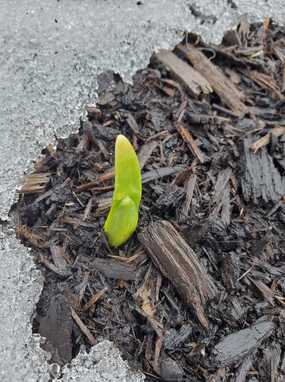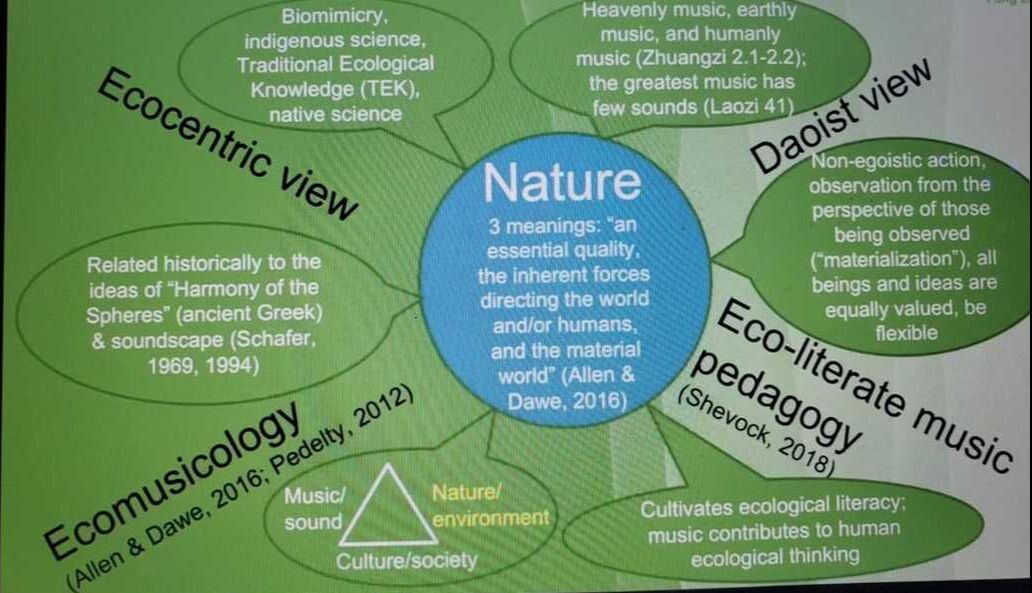
“The course and nature of things is such that
What was in front is now behind” ~Lao-tsu
In sharing his philosophical research at the 2021 NAfME Conference, Victor Fung used Confucian and Daoist philosophy to clarify two approaches to thinking about music education, the anthropocentric and the ecocentric. The anthropocentric view, which Fung links to John Blacking’s definition of music as “humanly organized sound,” has dominated music education discourse.
But a more ecocentric view, that centers nature, can be found in the work of Ecomusicologists and in my conception, Eco-Literate Music Pedagogy, and treats humans as one musicking being in a diverse world. (I took this photo of a slide from Fung’s presentation, which I think does an excellent job bringing together these diverse strains.) The focus of music education in this ecocentric view draws our attention to diverse concepts such as soundscapes, biomimicry, indigenous science, Traditional Ecological Knowledge, native science. Musics contribute to human ecological thinking, and Fung connects this understanding to the Daoist view: “Non-egoistic action, observation from the perspective of those being observed (“materialization”), all beings and ideas are equally valued, be flexible.” Fung ultimately recommends an approach that is both Anthro-Confucian and Eco-Daoist.
My interpretation: Like my photo (above) of the emerging flowers as winter gives way to Spring, I think it is time for the ecocentric perspective to come around. One thing I especially appreciate about Fung’s philosophical work (in his description of the Daoist-view) is non-egoistic action, and the levelling of hierarchies: all beings and ideas being equally valued. I have no particular expertise with Daoist thought, so I very well may misinterpret some of this. I have read the Lao-tsu (referenced above) but have not yet read Zhuangzi (the other Daoist thinker Fung references). By centering ecosystems, humans don’t disappear (as Fung clarified in a later slide); the human resides within the ecosystem. Humans are considered in the ecocentric view. But non-human beings are also considered in this approach (and often not in the anthropocentric view); often non-human beings (animals, plants, natural processes) are considered first to counterbalance the anthropocentric position, which has long dominated in music education philosophy. Hierarchies are leveled, and these hierarchies, which in the anthropocentric approach have placed humans above animals, men above women, White folk above Black folk, heteronormative folk above LGBTQ+ folk, are resisted. As written in the Lao-tsu (quoted above), what is in front is now behind. If humans take our moment of being “in front” as a chance to dominate and to destroy, our eventual moment of being “behind” might equally, and tragically, mean our own domination and destruction. Even if it didn't, domination and destruction are intrinsically bad, and we've dominated and destroyed (sometimes even while mouthing the word "stewardship") for far too many years.
DS

 RSS Feed
RSS Feed
